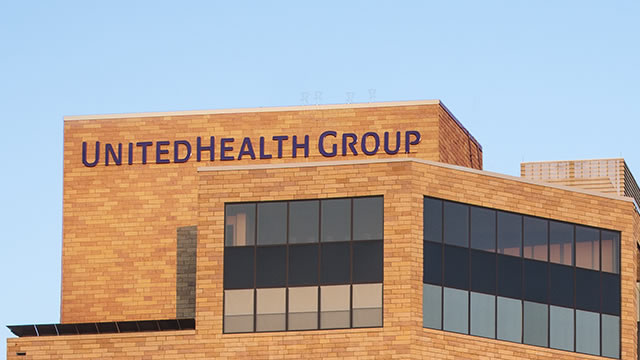
UnitedHealth Group Incorporated (UNH)

UnitedHealth Group (UNH) Sees a More Significant Dip Than Broader Market: Some Facts to Know
UnitedHealth Group (UNH) closed at $323.21 in the latest trading session, marking a -1.99% move from the prior day.

UnitedHealth: Axing Another Distraction, Onto 2026
UnitedHealth Group Incorporated is positioned for a multi-year turnaround, with 2026 marking the inflection and 2027 expected to deliver significant margin expansion. UNH's exit from Latin America, including a $1 billion Banmedica sale, strengthens the balance sheet and supports dividends and future buybacks. Despite elevated medical cost ratios and recent earnings pressure, UNH's Q3 revenue grew 12.3%, and management raised 2025 EPS guidance to at least $16.25.

Mangione shown videos of UnitedHealthcare CEO killing in court
Luigi Mangione has watched surveillance videos of the killing of UnitedHealthcare CEO Brian Thompson at a court appearance.

UnitedHealth agrees to sell South American business to private equity firm Patria for $1 billion, sources say
UnitedHealth Group has agreed to sell its last South American business Banmedica to Brazilian private equity group Patria Investments for $1 billion, two sources with knowledge of the matter said on Sunday.

UNH Battles MCR, Optum Bandages: But the Real Wild Card is Washington
UnitedHealth grapples with a surging MCR as Optum's strength steadies results while Washington's policy moves loom large.

Battle of Benefits: Will UNH Deliver the Bigger Dose or CVS? (Revised)
CVS's rising margins, stronger guidance and sharper valuation edge make it stand out in the UNH vs. CVS upside debate.

Battle of Benefits: Will UNH Deliver the Bigger Dose or CVH?
CVS's rising margins, stronger guidance and sharper valuation edge make it stand out in the UNH vs. CVS upside debate.

Is UNH's Hybrid Care Strategy Reshaping the Health System Playbook?
UnitedHealth pushes its hybrid care model forward, merging digital tools with in-person care as it extends this approach across global markets.

Why Did UNH Stock Lose Half Its Value And What Comes Next?
UnitedHealth's stock plummeted from over $600 to approximately $310-$320 (nearly 50% down) over the last year, and it's not merely market fluctuations. This decline stems from a significant issue centered around one key metric: the Medical Care Ratio (MCR).

UnitedHealth Group (UNH) Beats Stock Market Upswing: What Investors Need to Know
UnitedHealth Group (UNH) concluded the recent trading session at $319.97, signifying a +2.71% move from its prior day's close.

UnitedHealth: Buy Before The Buybacks Resume
While the market fixates on UnitedHealth's buyback pause as a sign of distress, a granular analysis of the balance sheet reveals a highly calculable, yet overlooked, path to deleveraging. Investors are currently pricing in a permanent liquidity crunch due to a $3.3 billion debt repayment shortfall, missing the critical distinction between trapped regulatory capital and actual insolvency. I detail how the divergence in Medicare Star Ratings and strategic PPO exits will restore margins, solve the regulatory capital puzzle, and force the buyback window open sooner than expected.

UnitedHealth Group Incorporated (UNH) is Attracting Investor Attention: Here is What You Should Know
UnitedHealth (UNH) has been one of the stocks most watched by Zacks.com users lately. So, it is worth exploring what lies ahead for the stock.







